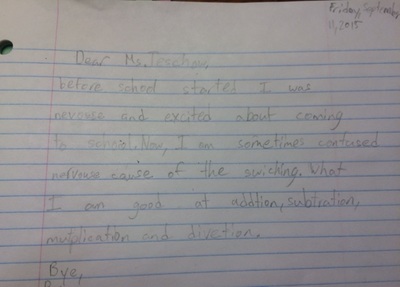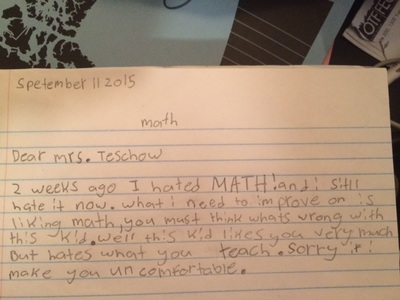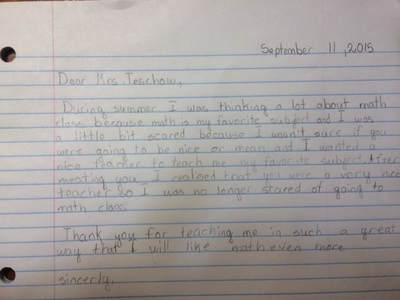If students are to be successful 21-century citizens, they cannot spend their entire school lives being spoon-fed by their teachers. In order to foster the effective self-regulatory, meta-cognitive and collaborative skills I believe (and research states) students will need in order to succeed in the society they will graduate into, considerable time needs to be spent at the beginning of each school year establishing and reinforcing routines in ways that help students to co-develop a safe and inclusive learning space.
Now that I am working in a full rotary situation (I see 6 classes, often for only 40 minutes at a time, and not always on consecutive days!), my 3-5 days is turning into more of a 2-3-week scenario.
Some might argue that this is too long to spend on "life skills" before launching into the math program proper. Sometimes I worry about those dissenting voices, but after observing some of the (no-so-self-regulated) behaviours in several of my classes this week, and reading the "learning letters" the students in some of my classes wrote me, I am more convinced than ever that easing into the math curriculum in order to allow time to establish important routines and collective growth mindset is critical to building a safe and inclusive learning environment where all can grow and share mathematically.
This week, I had students write me a letter telling me about how they had felt about math in previous years, and how they felt now.
(Click to enlarge)
These comments confirm the reality of Math anxiety in the middle school classroom, which inhibits students' abilities to see themselves as thinkers and as mathematical learners-in-progress. The letters also underscore the importance of the student-teacher relationship. This classroom chemistry goes a long way to making anxious mathematicians into confident problem solvers.
We've already started using our math eyes to find and discuss various real world "problems"... 40 minute periods don't really allow us to solve them in any great detail and still leave time for building classroom capacity. But based on the research and my own observations this past week, investing in the latter will help the success of the former once we really "start the math"!





 RSS Feed
RSS Feed